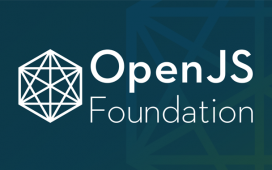An “unwillingness” by the UK government to engage with the threat posed by far-right extremists is creating a vacuum in which such groups can flourish, according to a study by a Whitehall thinktank of their fundraising activities.
The report warns that the focus placed on Islamists has meant that counter-terrorist authorities tasked with looking into financing have made little attempt to understand how far-right individuals and groups raise funds.
Calling for cross-border collaboration with the private sector, the report by the Royal United Services Institute (RUSI) emphasised the importance of financial leads in investigations such as the one into the killing of the Labour MP, Jo Cox, by the extreme rightwing terrorist Thomas Mair.
It emerged after the murder that Mair had spent approximately £500 purchasing manuals on the construction of bombs, the assembly of homemade pistols and issues of a journal published by a US neo-Nazi organisation.
“Where this activity occurs online involving electronic payments rather than anonymous cash payments, it could trigger a ‘red flag’ for financial institutions processing the related payments that may be useful to law enforcement,” the study said.
The authors also bemoaned the lack of clear evidence in the public domain about the funding of National Action, the far right group that was banned in 2016 after it celebrated Cox’s murder. The group had a clear organisational structure and was believed to have been well-funded.
“Recruitment has not stopped since the group’s proscription, but funding has become more reliant on more discrete peer-to-peer transactions, such as PayPal or bank transfers,” the study added.
Cryptocurrencies have become especially prevalent following the de-platforming of some sites from traditional payment processors and the need to transfer funds internationally.
As online payment companies such as PayPal, Stripe, Apple Pay, and Google Pay increasingly declined to process card payments on many far-right blogs and websites, so-called cryptocurrencies such as Bitcoin were being increasingly used by far-right extremists, who were also drawn to the anonymity.
Tom Keatinge, one of the paper’s authors and a former investment banker who heads RUSI’s centre for financial crime and security studies, told the Guardian that while the threat of far-right extremism was typically classified as “domestic extremism”, there was a need to catch up with the extent to which such similarly minded groups and individuals fed off each other internationally and moved funds around.
He cited the example of funding from the US in support of support Tommy Robinson, the anti-Islam activist whose real name is Stephen Yaxley-Lennon, as well as the alleged example of the donation made to an Austrian far-right group by the man accused of carrying out the Christchurch massacre.
Keatinge added that there was also a need to “even up the scales” in terms of how the authorities tackled extreme right and Islamist extremists of different hues.
“If the extreme right is now a priority for MI5, which the government says it is, then are we using all the same tools in each case? Finance is a core element of how the authorities go after Islamist terrorism, and have gone after the IRA for years. What is the financial strategy in relation to how they go after the extreme right? There is clearly more that can be done there, definitely.”
The authors also warn that the potential pursuit by police of dangerous far-right groups and its financing was being frustrated by the lack of a clear, legal definition that could be applied to such extremism.
“This challenge is exacerbated by the apparent unwillingness of the UK government to engage – at a strategic and political level – with the threats posed by rightwing extremism, leaving a leaderless vacuum in which these groups can flourish.”
The report concludes that the terrorist or extremist rightwing threat in the UK and across western Europe was likely to grow in the years ahead, “encouraged by algorithm-induced echo chambers on social media platforms that incite and endorse extremist views”.
“Today’s low-priority risk could become tomorrow’s high-priority threat, and developing a financial analysis and understanding of these groups, their activities and facilitators is imperative.”






